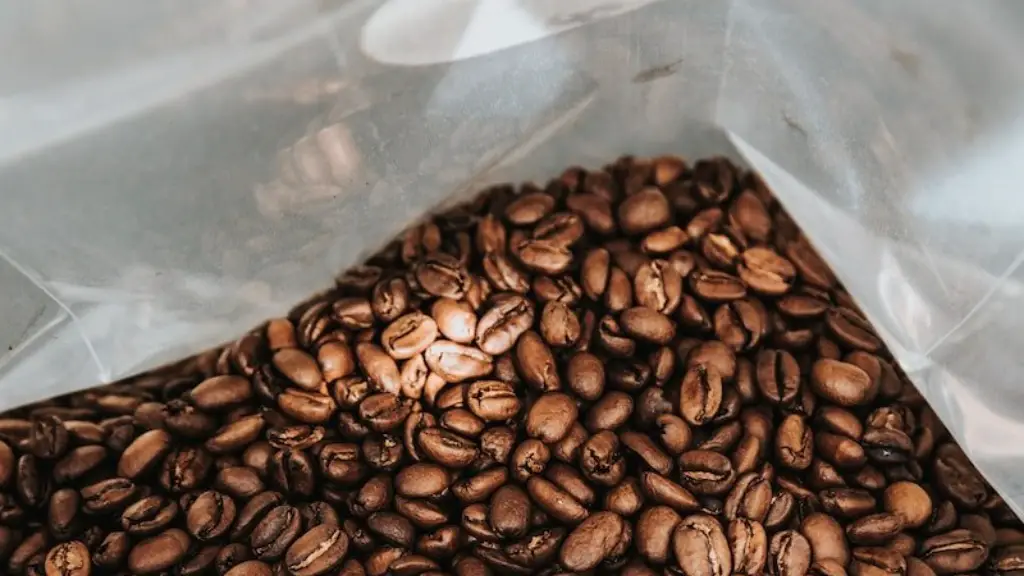Drinking coffee can make you feel exhausted, despite it often being used as one of the go-to methods to give you a boost. Coffee and caffeine are known to improve alertness and help people stay awake, however it may also have the weird and unwanted side effect of making you feel sleepy.
The sleepiness associated with coffee may be because it blocks adenosine, a neurotransmitter that helps regulate sleep and wakefulness. Caffeine works by attaching to the adenosine receptors, blocking them and preventing the release of adenosine. This results in a surge of energy, a decline in alertness and even periods of fatigue and sudden sleepiness.
The exact cause of the sleepiness is still being debated by experts. Some believe that caffeine may launch a “rebound effect”, where it over stimulates and exhausts the body, leading to feelings of extreme drowsiness. While others suggest that the elevated energy followed by crash after drinking coffee is caused by a lack of the chemical neurotransmitter dopamine in the brain.
It is thought that the effects of caffeine on the body are affected by the amount of coffee ingested. Consuming large amounts of caffeine can cause increased production of cortisol, an “alertness” hormone, but can also influence levels of serotonin, causing lowered alertness levels. High doses of caffeine can also affect sleep patterns and reduce the amount of deep sleep, leading to a higher chance of feeling sleepy.
Individual tolerance to caffeine varies. People who drink coffee often, may be more resistant to the jolting effects of caffeine. Others may suffer from greater withdrawal symptoms if too much caffeine is consumed in a short period of time, leading to a tired, sleepy feeling. In some cases drinking too much coffee in a 24 hour period may interfere with your sleeping pattern, making you more likely to feel tired after drinking coffee when you should be winding down at the end of the day.
What to do if you feel sleepy after drinking coffee
In order to reduce the likelihood of feeling sleepy after drinking coffee, it is important to maintain good sleeping habits and be aware of how much caffeine you are consuming in a day.
Limiting your caffeine intake to no more than 400 milligrams a day (or less than 4 cups) can reduce the chances of extreme levels of adenosine being blocked. Before drinking coffee, it is a good idea to have a snack to ensure you have enough energy during the day, and make sure you are consuming the correct amount of nutrients, such as minerals and vitamins.
Drinking coffee throughout the day can also cause fatigue by overriding your body’s natural circadian rhythm – it’s internal clock. Avoid drinking coffee after 4pm to ensure that you will be able to sleep at night and avoid feeling sleepy during the day.
If you do feel sleepy after drinking coffee, it is a good idea to take a few moments to relax. Try some relaxation techniques such as deep breathing, or take a short walk. Doing some physical activity can help increase both physical and mental alertness and help you focus.
Most importantly, make sure to get enough rest. Establish a schedule for sleeping and going to bed each night and try to stick to it. If you still feeling fatigued during the day, try having a 20 minute power nap during the day – it can reset your mental and physical state.
Coffee alternatives and how caffeine affect sleep
If you are looking for alternatives to coffee, there are a few options. Tea, for example, contains much lower levels of caffeine and so is less likely to cause sleepiness. Or try drinking water or a diluted juice. Staying hydrated can help you have more energy during the day and avoid the feeling of drowsiness.
Although consuming caffeine can increase alertness and reduce fatigue, excessive caffeine consumption can cause problem during sleep. Caffeine consumed several hours before bed may interrupt the sleep cycle, causing insomnia, while caffeine consumed during the day may cause sleepiness as it can reduce your natural day-time energy levels.
When looking at the positive and negative side effects of coffee, it is important to remind yourself that coffee and caffeine is a stimulant and it should not be taken in excess. Consuming coffee relatively close to bed-time can disrupt sleep and may cause tiredness the following day.
Conclusion
It is possible to prevent sleepiness after drinking coffee, but the effects will be different for everyone. Caffeine is a powerful stimulant, and so it is important to know your own personal tolerance to caffeine. Moderation when drinking coffee is key – having too much caffeine can lead to that unwanted feeling of sleepiness. Knowing when to drink coffee, and when to avoid it, is the best way to stay alert and energised during the day.



